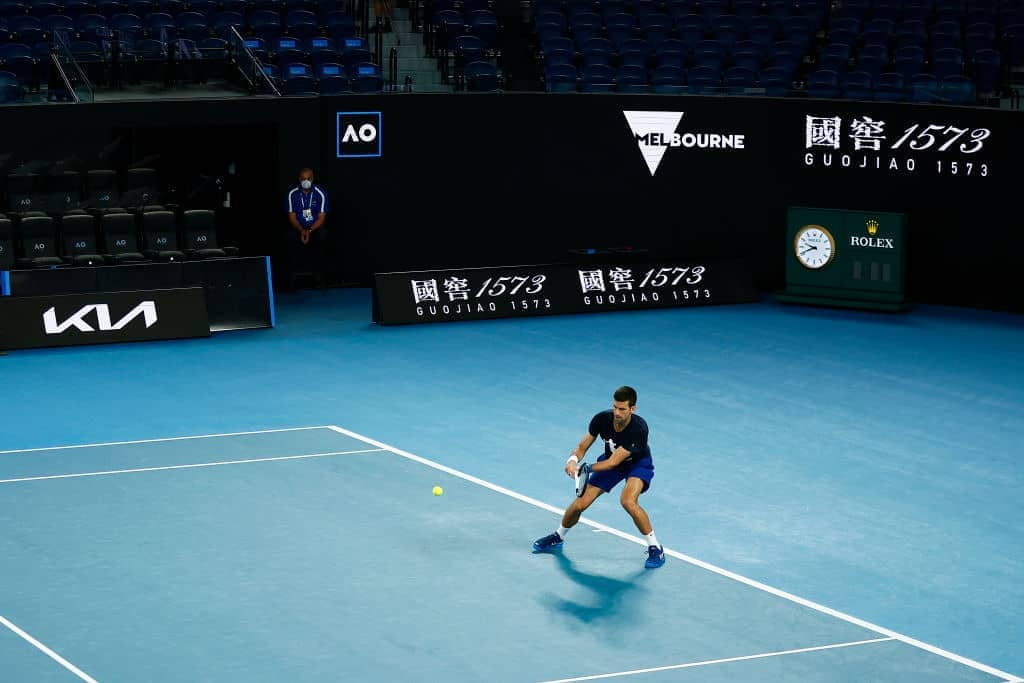The Australian government’s decision to cancel the world number one tennis player Novak Djokovic’s visa was inevitable in the end.
Things started well for Djokovic. On Monday he won his initial match in the law courts when his QC-led legal team successfully challenged his visa cancellation as a breakdown of procedural fairness.
After this utter humiliation, it seemed unlikely that Scott Morison’s embattled government would overturn the Federal Circuit Court judge’s ruling. But on Friday evening local time the umpire struck back. Australian immigration minister Alex Hawke used his personal discretion under the country’s migration law to cancel the Serbian’s visa, citing ‘health and good order grounds, on the basis that it was in the public interest to do so.’
What changed the government’s mind? They were first aided by the fact that Djokovic admitted to making untrue declarations on his immigration forms. It also emerged that he attended public events maskless and undistanced in Serbia when he knew he may have had Covid-19, and was interviewed by French journalists when he knew he had the virus. He also was reported to have broken Spain’s coronavirus rules by entering the country without the jab. All this became impossible to ignore. If he was cavalier about the risk of spreading Covid in Spain and Serbia he could do it in Australia too, giving minister Hawke justification to boot out the Open’s number one seed. And so he has.
Had Hawke not acted, it would have sent a message that Australia’s border rules could be flouted at will, and that vaccination against Covid-19, which almost 95 per cent of the Australian population aged 12 and over has put up with for the common good, has been a waste of time and a great deal of money.
If Djokovic truly wanted to take a stand, he shouldn’t have entered the Australian Open in the first place
As for Djokovic, his high-powered legal team immediately raced to shift the action back from Melbourne Park to the courts of the city’s legal district, to prevent Djokovic being escorted to Tullamarine Airport. After a late-night hearing, Judge Kelly referred Djokovic’s unresolved appeal to the next tier of the Federal Court, stopping the authorities from deporting him – for now.
There’s no question that Australia’s Covid border rules – both externally and between our states – are unnecessarily capricious, brutal and Kafkaesque in their complexity. This is particularly so given that Covid knows no borders and Omicron is well and truly here, currently infecting at least 65,000 Australians daily. Australian leaders’ ‘no jab, no job’ mentality is a brutal assault on personal freedoms, and especially hard to justify when staff absences and goods shortages due to Omicron are crippling the economy, forcing state governments to slash isolation periods for infected people and their close contacts.
The Australian government’s failure to warn Djokovic of the consequences of his arriving in Australia unvaccinated, and the official bungling that allowed him to leave detention on Monday, is not the tennis player’s fault either. But he could simply have arrived in Australian double-vaccinated – or chosen not to come at all.
Double vaccination was the preferred option of Tennis Australia, and almost all the top 100 players were willing to be jabbed in return for playing and competing for the lavish prize money on offer.
Instead, Djokovic presumed he was too big a beast to be handled. As top player and top seed he reckoned the Australian Open, its broadcasters and sponsors needed him more than he needed it, and that sport-mad Australia would open its doors to him despite his brazen rejection of the rules.
Djokovic is entitled to his clearly sincere anti-vax beliefs. But if he truly wanted to take a stand on principle, he shouldn’t have entered the Australian Open and come to Australia in the first place.
Indeed, by staying home and depriving the Open of its biggest drawcard, Djokovic would have struck a far more effective blow against Australia’s heavy-handed border rules and vaccine mandate policies, and the authoritarian tendences of its state governments which, to Morrison’s frustration and chagrin, have direct responsibility for Australia’s pandemic responses.
But the lure of that record twenty-first Grand Slam title was too great for his ego to pass up.
Elite sportsmen are supposed to be single-minded and self-focused. But Djokovic’s battle with Australia has taken this to an incendiary level.
He has been, to put it mildly, completely reckless about the widespread collateral damage he has caused to his own reputation; to the sport that has been so generous to him; to his countrymen and supporters who defended him so fiercely; to the Australian Open organisers, especially tournament director Craig Tiley – whose reputation for high competence has been shredded by his bending over backwards to obtain a so-called medical exemption for his star player; to the global standing of the Open itself; and to the Australian government, whose bureaucratic incompetence and rigid enforcement of the rules is unfit for purpose. And he has taken advantage of the Australian people, whose warm and welcoming image has been badly tarnished.
Ultimately, the whole fiasco may cost Scott Morrison his job at the general election expected in May, as the anger of the Australian public remains white-hot on the issue. Not because his government kicked Djokovic out; but because it admitted him in the first place. This sorry farce is a long way from being over.
Terry Barnes is a Melbourne-based contributor to the Spectator and the Spectator Australia






Comments